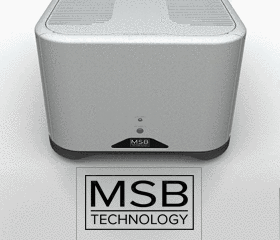First impression, after a few hours listening to the Centaur + Virgo (not mk2) combo:
It's good. Very good
In comparison to my darTZeel combo, there's a little more oomph, and depending on the song, I thought it was detrimental. Surprisingly, in terms of punchiness, the darTZeel betters it.
The midrange is extremely thick and proeminent as well, which some people will enjoy, and since this is some fast equipment, it'll provide transparency+midrange goodness. It's not as extended as the darTZeel on the high frequencies, though, which makes it lack air, and depending on the song, renders the music too "thick".
On the Q3, the Constellation made the darTZeel sound weak and low powered, since I could crank the volume way higher, and it'd still sound composed, while you can clearly hear the darTZeel straining at such high (100+dB) volumes.
Build quality is excellent, impressive even. Even the preamp is very heavy, even with the external PS.
I'm using an MIT Oracle between pre and amp, specially configured by MIT for Constellation. I'm waiting on another MIT to hook the MSB to the preamp, so I'm using some cheaper cable I had around here for the moment...
Responding to the OP, no, it's not "clinical" gear, like Soulution or Goldmund. It's actually pretty "dark" and "thick", almost too much of it actually.
alexandre
It's good. Very good
In comparison to my darTZeel combo, there's a little more oomph, and depending on the song, I thought it was detrimental. Surprisingly, in terms of punchiness, the darTZeel betters it.
The midrange is extremely thick and proeminent as well, which some people will enjoy, and since this is some fast equipment, it'll provide transparency+midrange goodness. It's not as extended as the darTZeel on the high frequencies, though, which makes it lack air, and depending on the song, renders the music too "thick".
On the Q3, the Constellation made the darTZeel sound weak and low powered, since I could crank the volume way higher, and it'd still sound composed, while you can clearly hear the darTZeel straining at such high (100+dB) volumes.
Build quality is excellent, impressive even. Even the preamp is very heavy, even with the external PS.
I'm using an MIT Oracle between pre and amp, specially configured by MIT for Constellation. I'm waiting on another MIT to hook the MSB to the preamp, so I'm using some cheaper cable I had around here for the moment...
Responding to the OP, no, it's not "clinical" gear, like Soulution or Goldmund. It's actually pretty "dark" and "thick", almost too much of it actually.
alexandre



















